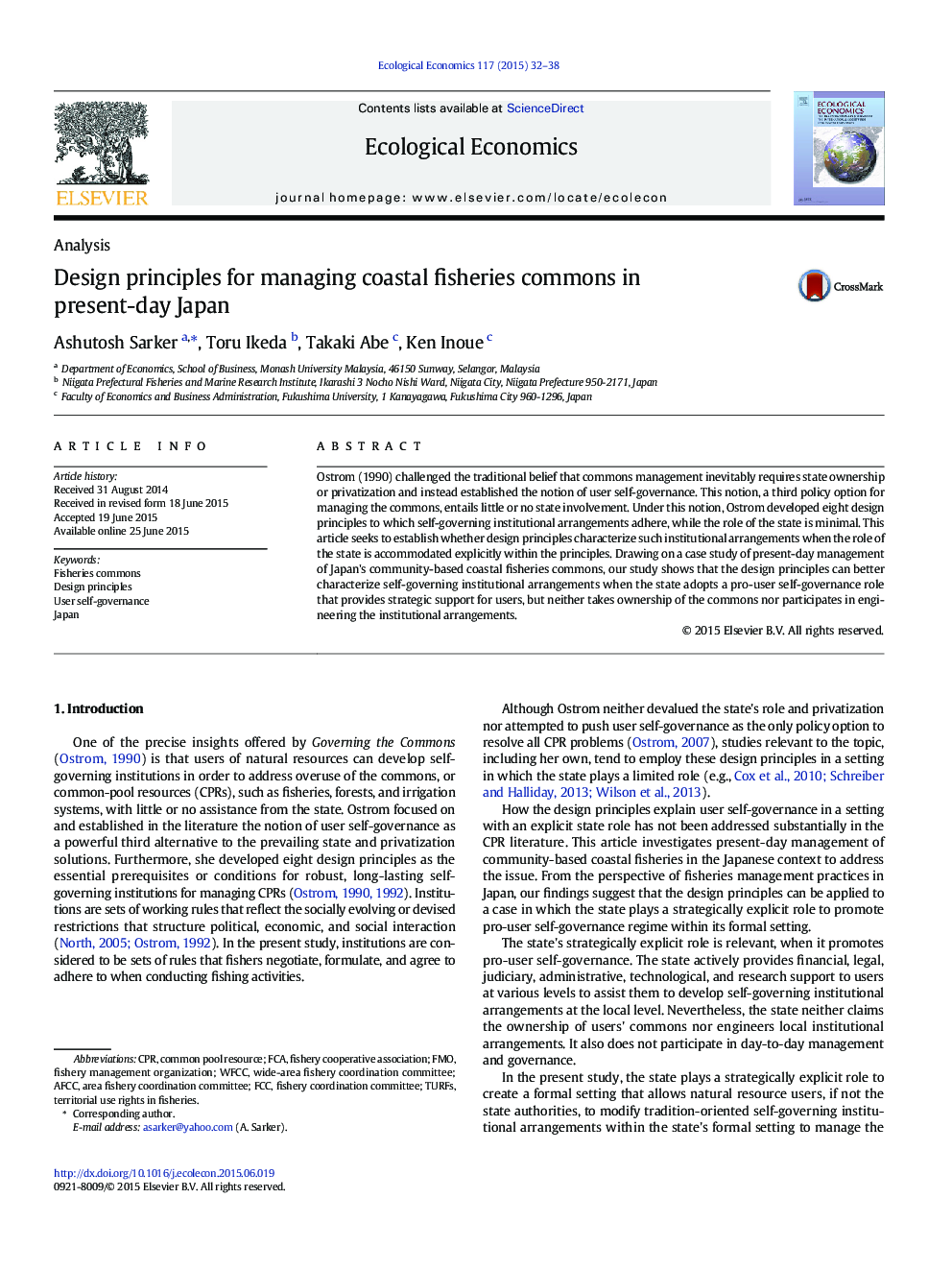| کد مقاله | کد نشریه | سال انتشار | مقاله انگلیسی | نسخه تمام متن |
|---|---|---|---|---|
| 5049277 | 1476362 | 2015 | 7 صفحه PDF | دانلود رایگان |
- We investigate the role of the state in enhancing user self-governance.
- When the state assists strategically, stronger self-governing institutions develop.
- The state's role increases the utility of Ostrom's (1990) eight design principles.
Ostrom (1990) challenged the traditional belief that commons management inevitably requires state ownership or privatization and instead established the notion of user self-governance. This notion, a third policy option for managing the commons, entails little or no state involvement. Under this notion, Ostrom developed eight design principles to which self-governing institutional arrangements adhere, while the role of the state is minimal. This article seeks to establish whether design principles characterize such institutional arrangements when the role of the state is accommodated explicitly within the principles. Drawing on a case study of present-day management of Japan's community-based coastal fisheries commons, our study shows that the design principles can better characterize self-governing institutional arrangements when the state adopts a pro-user self-governance role that provides strategic support for users, but neither takes ownership of the commons nor participates in engineering the institutional arrangements.
Journal: Ecological Economics - Volume 117, September 2015, Pages 32-38
